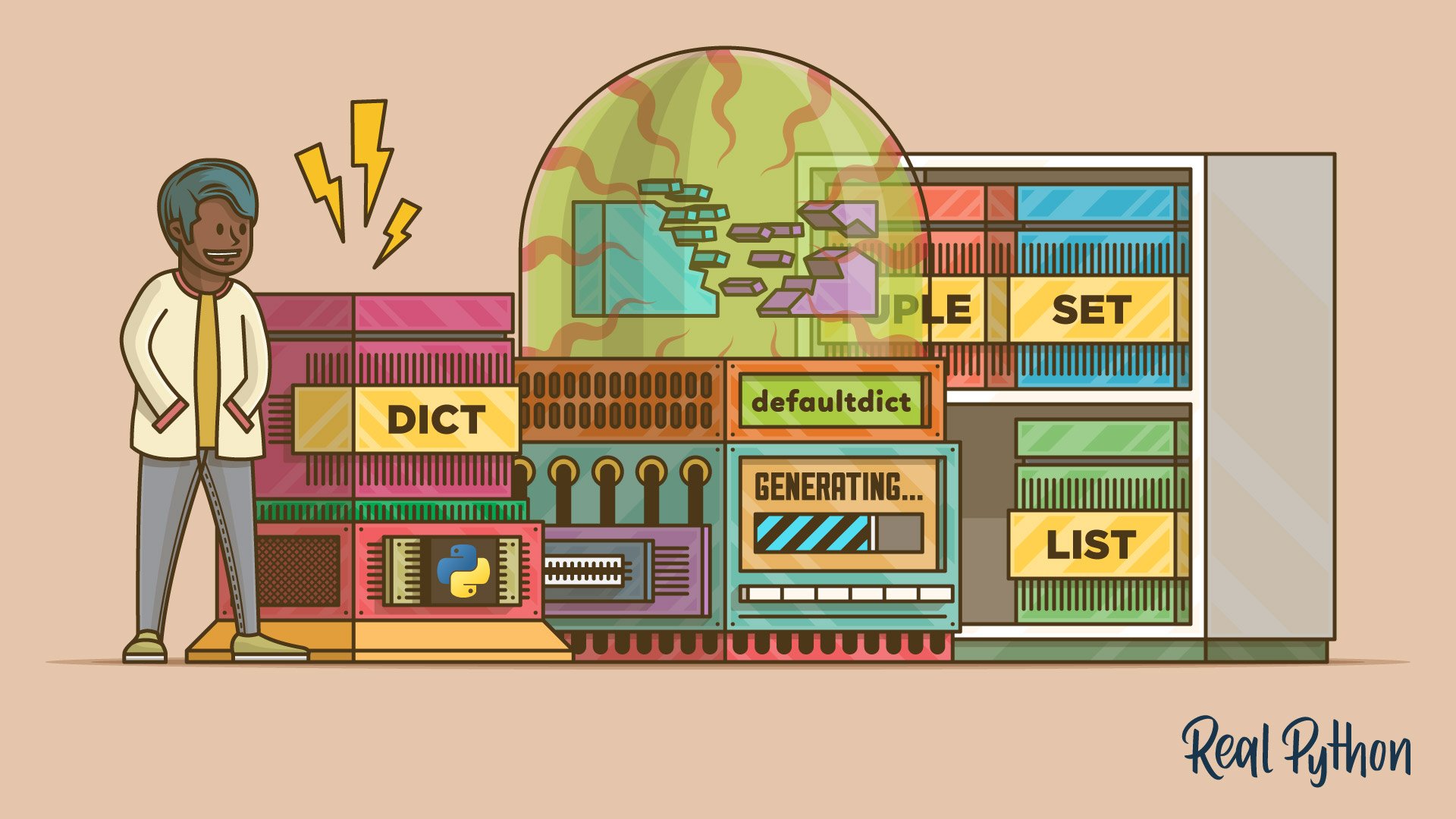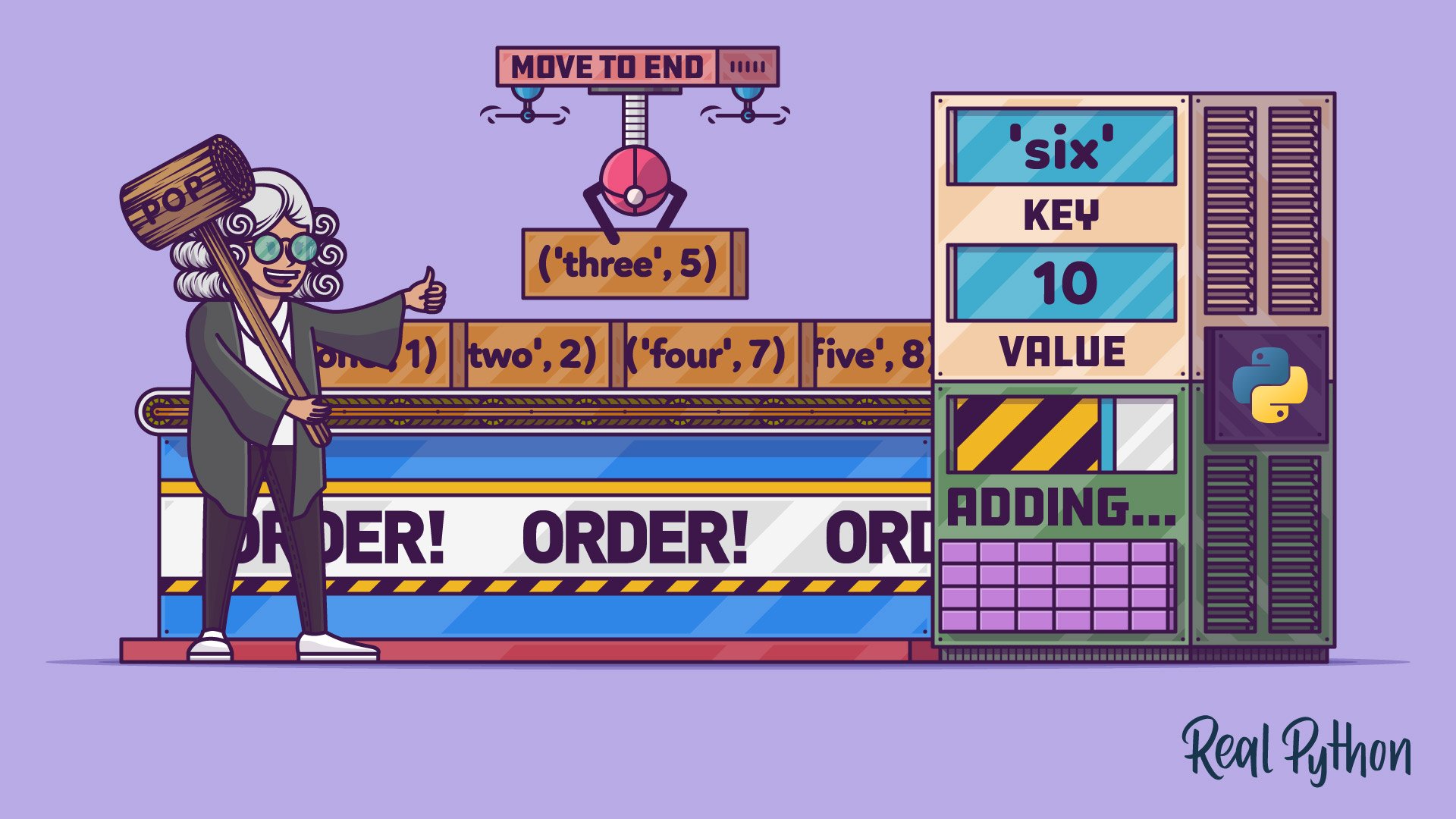The Python defaultdict type behaves almost exactly like a regular Python dictionary, but if you try to access or modify a missing key, then defaultdict will automatically create the key and generate a default value for it. This makes defaultdict a valuable option for handling missing keys in dictionaries.
In this course, you’ll learn:
- How to use the Python
defaultdicttype for handling missing keys in a dictionary - When and why to use a Python
defaultdictrather than a regulardict - How to use a
defaultdictfor grouping, counting, and accumulating operations
What’s Included:
- 7 Lessons
- Video Subtitles and Full Transcripts
- 2 Downloadable Resources
- Accompanying Text-Based Tutorial
- Q&A With Python Experts: Ask a Question
- Certificate of Completion
Downloadable Resources:
Related Learning Paths:










